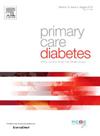Development, feasibility, and preliminary effects of a culturally adapted, evidence-based, and theory-driven diabetes self-management programme for Chinese adults with type 2 diabetes receiving insulin injection therapy
IF 2.3
4区 医学
Q3 ENDOCRINOLOGY & METABOLISM
引用次数: 0
Abstract
Aims
To describe the development of a culturally adapted, evidence-based, and theory-driven diabetes self-management programme for Chinese adults with type 2 diabetes receiving insulin injection therapy and to assess the feasibility, acceptability, and preliminary effects of the newly developed intervention.
Methods
The Medical Research Council framework was adopted to guide the intervention development and a feasibility study. A prospective, two-arm, parallel-group, assessor-blinded randomised controlled trial was conducted. Participants were randomly allocated to receive either the newly developed intervention or parallel attention control contact from community nurses. Between-group differences in changes in outcome variables were analysed using the Mann-Whitney U test.
Results
The newly developed intervention consists of one individual interview session, three group-based education sessions, and two telephone-based maintenance sessions. A total of 24 participants were recruited with the recruitment rate and overall retention rate of 77.4 % and 95.8 %, respectively. The results indicated that the intervention participants reported significantly greater improvements in self-efficacy (Hedge’s g = 1.69) and self-management behaviours (Hedge’s g = 3.24), and reductions in diabetes-related distress (Hedge’s g = 1.49) compared with those in the control group (all p 0.05).
Conclusion
The diabetes self-management programme was feasible and acceptable. The intervention showed promising patient-centred benefits. A future large-scale randomised controlled trial is warranted.
针对接受胰岛素注射治疗的中国成年 2 型糖尿病患者,开发了一项适应中国文化、以证据为基础、以理论为驱动的糖尿病自我管理计划,该计划的可行性和初步效果。
目的:介绍针对接受胰岛素注射治疗的中国成年2型糖尿病患者开发的适应文化、循证和理论驱动的糖尿病自我管理项目,并评估新开发的干预措施的可行性、可接受性和初步效果:方法:采用医学研究委员会的框架来指导干预措施的开发和可行性研究。进行了一项前瞻性、双臂、平行组、评估者盲法随机对照试验。参与者被随机分配到接受新开发的干预措施或接受社区护士提供的平行注意力对照接触。试验结果采用 Mann-Whitney U 检验分析结果变量变化的组间差异:新开发的干预措施包括一次个人访谈、三次小组教育和两次电话维护。共招募了 24 名参与者,招募率和总体保留率分别为 77.4 % 和 95.8 %。结果表明,与对照组相比,干预参与者的自我效能(Hedge's g = 1.69)和自我管理行为(Hedge's g = 3.24)均有明显改善,与糖尿病相关的困扰(Hedge's g = 1.49)也有所减少(所有数据均小于 0.05):结论:糖尿病自我管理计划是可行和可接受的。结论:糖尿病自我管理计划是可行和可接受的,干预措施显示了以患者为中心的良好效果。未来有必要进行大规模随机对照试验。
本文章由计算机程序翻译,如有差异,请以英文原文为准。
求助全文
约1分钟内获得全文
求助全文
来源期刊

Primary Care Diabetes
ENDOCRINOLOGY & METABOLISM-PRIMARY HEALTH CARE
CiteScore
5.00
自引率
3.40%
发文量
134
审稿时长
47 days
期刊介绍:
The journal publishes original research articles and high quality reviews in the fields of clinical care, diabetes education, nutrition, health services, psychosocial research and epidemiology and other areas as far as is relevant for diabetology in a primary-care setting. The purpose of the journal is to encourage interdisciplinary research and discussion between all those who are involved in primary diabetes care on an international level. The Journal also publishes news and articles concerning the policies and activities of Primary Care Diabetes Europe and reflects the society''s aim of improving the care for people with diabetes mellitus within the primary-care setting.
 求助内容:
求助内容: 应助结果提醒方式:
应助结果提醒方式:


